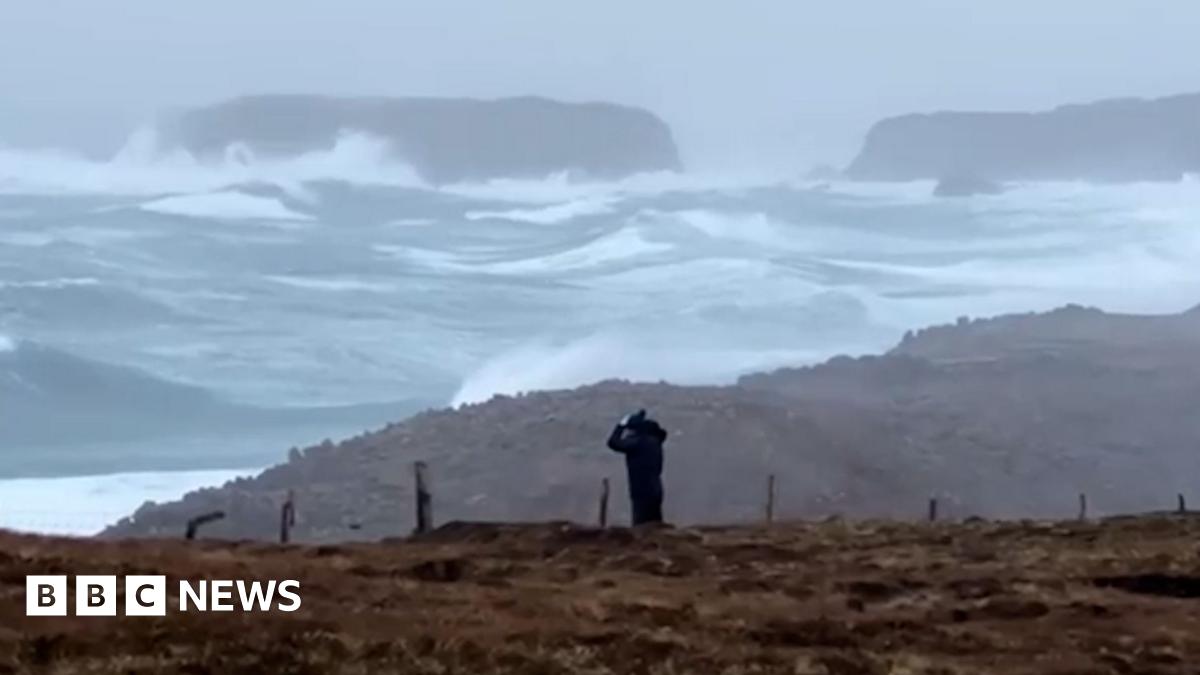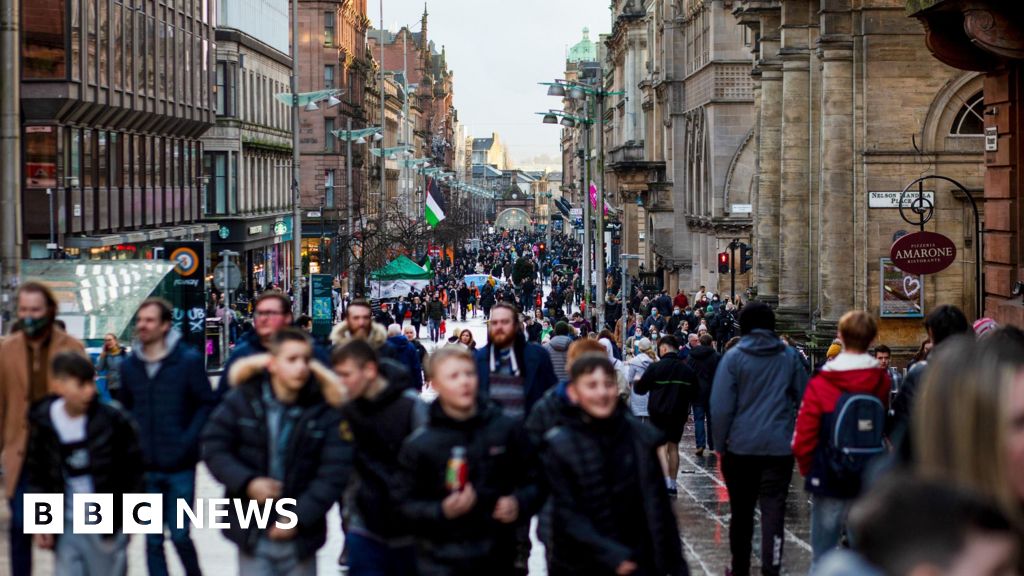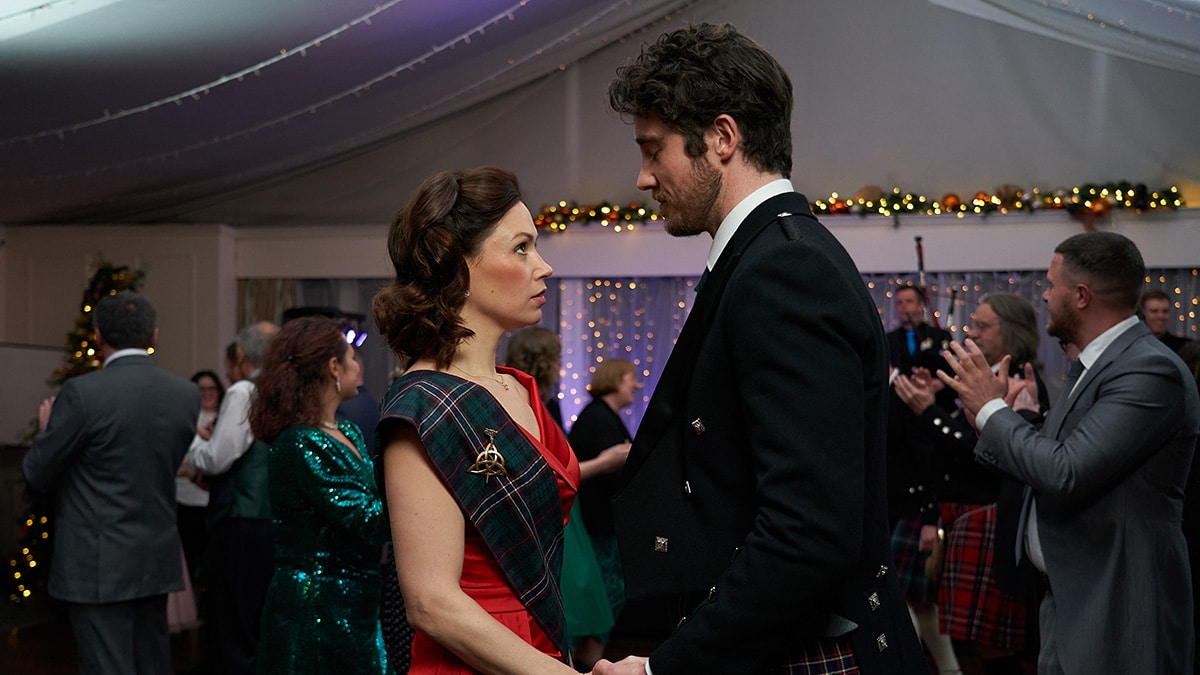Bussiness
Churches still have an ‘important’ role to play in Scottish Parliament business
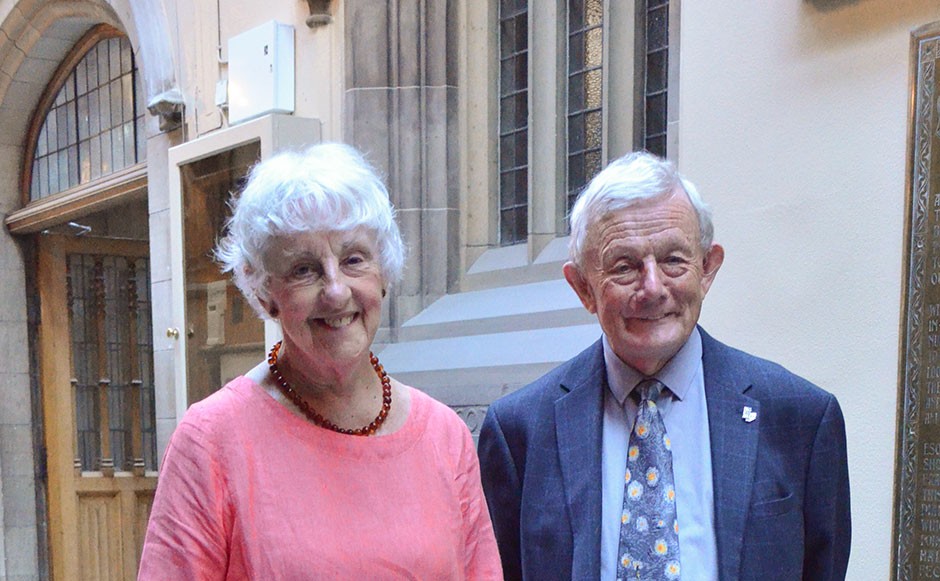
Published on 5 September 2024
10 minutes read
Churches still have an “important role” to play to influence decision-making in the Scottish Parliament for the common good.
Rt Hon Lord Wallace of Tankerness KC, a former Moderator of the General Assembly of the Church of Scotland, said there is “real expertise” within the membership of churches and other faith groups who can make a significant contribution to the debate around a range of critical issues.
The church elder and former Deputy First Minister of Scotland made the remark in an address delivered for him at a conference to mark the 25th anniversary of devolution.
The event at the Assembly Hall in Edinburgh yesterday provided an opportunity for people closely linked to Holyrood to reflect back on a quarter century of parliamentary and political engagement and imagine the future of religion and politics in Scotland.
It also marked the 25th anniversary of the Scottish Churches Parliamentary Office (SCPO), established to build a fruitful relationship between the churches and the new parliament.
In his address, Lord Wallace, who served as Moderator in 2021-22, said many members of the first session of the Scottish Parliament, which was convened in 1999 and met in the General Assembly Hall in Edinburgh until 2004, “were people of faith”.
The leader of the Scottish Liberal Democrats and MSP for Orkney at the time, he wrote: “It was an exciting time in Scottish politics and dare I say in the relations between church and parliament.
“We were about to embark on a new venture – the Scottish Parliament, which many of us had campaigned for over many years, and which the churches, through the Constitutional Convention, had not only campaigned for, but had also contributed in shaping.
“The individual contributions of people like Canon Kenyon Wright of the Scottish Episcopal Church and the Rev Norman Shanks from the Church of Scotland were valuable and considerable.”

Lord Wallace, a member of St Magnus Cathedral in Kirkwall, Orkney, said many people were inspired by the ideal of establishing a new parliament in a country which already had established democratic institutions.
He described it as an opportunity to remedy the shortcomings of a system which seldom found sufficient time for Scottish legislation and created a backlog of necessary reforms.
“For me the liberating feature of the 1999 Scottish election campaign was that after years of fighting elections where the constitutional issue was never far away, it was now possible to focus on issues such as education, housing, transport, health,” he wrote.
“We sought a Scottish Parliament not as an end in itself but as a means to the end of serving Scotland’s people and communities better, not least through addressing the people’s priorities.”
Lord Wallace said there was a notion for many years that the General Assembly of the Church of Scotland was the closest Scotland came to having its own parliament.
“The parish-based structure meant that all parts of Scotland could be represented,” he added.
“Here was a body debating, sometimes with great vigour, the key issues of their time.”
The life peer said the Scottish Parliament, located opposite Holyrood Palace, is a much more representative body of society and attracted more attention than the annual General Assembly.
“To Kirk members, the General Assembly possibly still mattered, even matters, but its impact on the Scottish public and body politic was undoubtedly diminished,” he added.
“In an important respect that made the role of the SCPO even more important in ensuring the voice of faith was/is heard in the public square.”
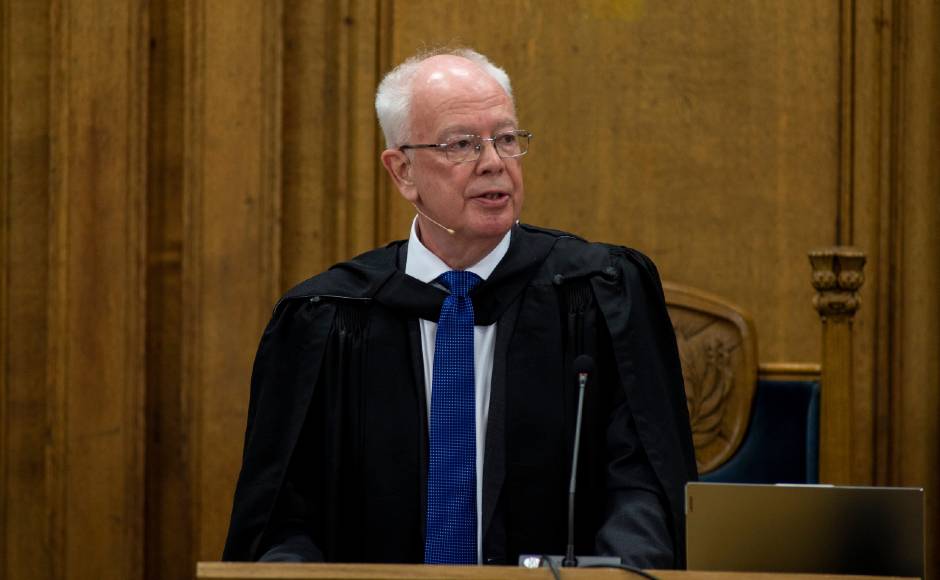
Reflecting on the last 25 years of devolution, Lord Wallace said the domestic agenda was to the fore during the early years of the parliament.
“There is no doubt that in for the second half or longer, the debate has been dominated again by the constitutional issue,” he wrote.
“That poses particular problems for church and faith groups.
“In many cases, members are divided on whether Scotland should be independent or not and even whether there should be a referendum at all.
“There is space in the public arena for policy initiatives, and from a church and faith perspective, there is no shortage of pressing issues to investigate and on which to develop ideas.”
Lord Wallace said churches had an interest in a range of subjects including drug deaths and drug misuse, provision of social care, climate change, tackling child poverty and energy poverty, immigration, the housing crisis and plight of the homeless, prison overcrowding, criminal justice issues and the health service.
“I know from meeting people, both as a politician and a former Moderator of the General Assembly, that there is real expertise within the churches and other faiths who can make a significant contribution on these critical issues,” he wrote.
“And in spite of what a recent Logos poll may have said, my experience as Moderator was that the political parties and political leaders are willing to engage.
“I wouldn’t want to put words into their mouths, but I suspect that many would welcome others making an informed contribution on issues which address the priorities of our communities.
“So, whilst we could bemoan less TV and media coverage, or a sea-change in lobbying practice, which seems to favour the professional over the voluntary, I still believe that there is an important role and an important contribution for our churches and faith communities.”
Lord Wallace was unable to attend the event in person and his address was read by Clare Flenley, Public Life and Social Justice Programme Officer for the Church of Scotland.
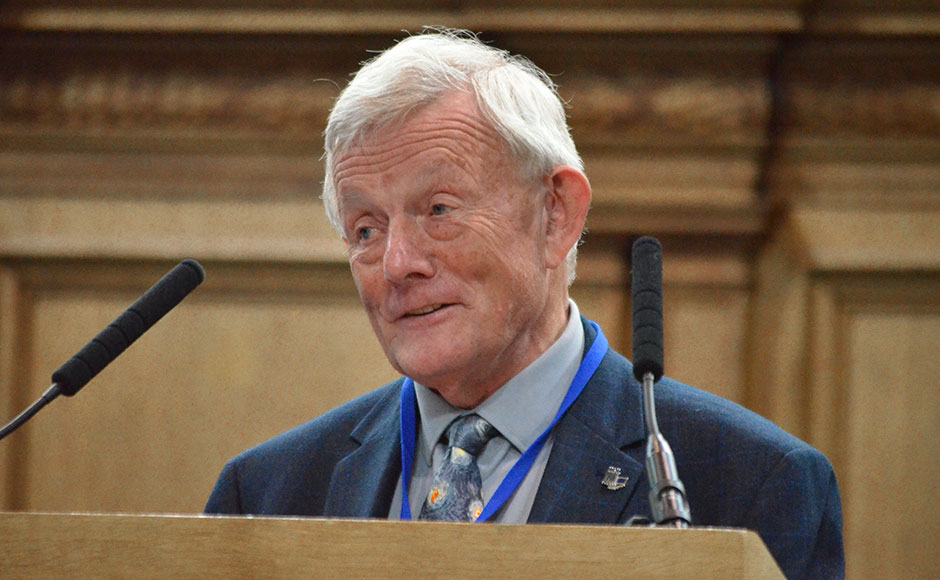
Rev Dr Graham Blount served as the first Scottish Churches Parliamentary Officer when the Scottish Parliament was reconvened in 1999.
He told the conference that about 10% of the first cohort of MSPs were Church of Scotland elders.
Dr Blount, an ordained Kirk minister, added that Scotland’s First Minister, the late Donald Dewar, described himself as a “cultural Presbyterian”.
He said the first substantive debate in the Scottish Parliament was about prayers and the first petition to be considered by a committee of MSPs came from a United Free Church congregation in Shetland.
Nurture and engagement
Dr Blount told the conference that the first meeting he arranged for SCPO members was with the Minister for Rural Affairs (Ross Finnie MSP) to discuss land reform and he was a Kirk member and the co-author of the most recent Church and Nation report at that time.
He said the relationships between the Church and parliament is multi-faceted and helped contribute to the “nurture” of future politicians.
“We should not exaggerate the retreat in that (today), we have recently had two Muslim party leaders (Humza Yousaf and Anas Sarwar) coming from a faith perspective and the present First Minister (John Swinney) is an active member of the Kirk,” said Dr Blount.
“The Deputy First Minister (Kate Forbes) is a member of the Free Kirk, the next leader of the Tory party might well be an evangelical Christian and the next co-convener of the Green Party might well be someone who trained in the Scottish Christian youth assembly.”
Dr Blount held the role for 10 years and said he learned his craft from observing the Conference of European Churches and its work with ecumenical institutions in Brussels and Strasbourg.
He described SCPO (then and now) as playing an enabling role and provides information and advice to churches, institutionally and at grassroots level.
It produced briefing papers and a monthly update of its activities for member churches although Dr Blount revealed that several MSPs also received them.
He said SCPO used and created opportunities for people to engage with the Scottish Parliament, bringing together people with government ministers, civil servants and party portfolio spokespeople.
The body, as it did then and now, responds to consultations, gives evidence to parliamentary committees and participated in cross-party groups.
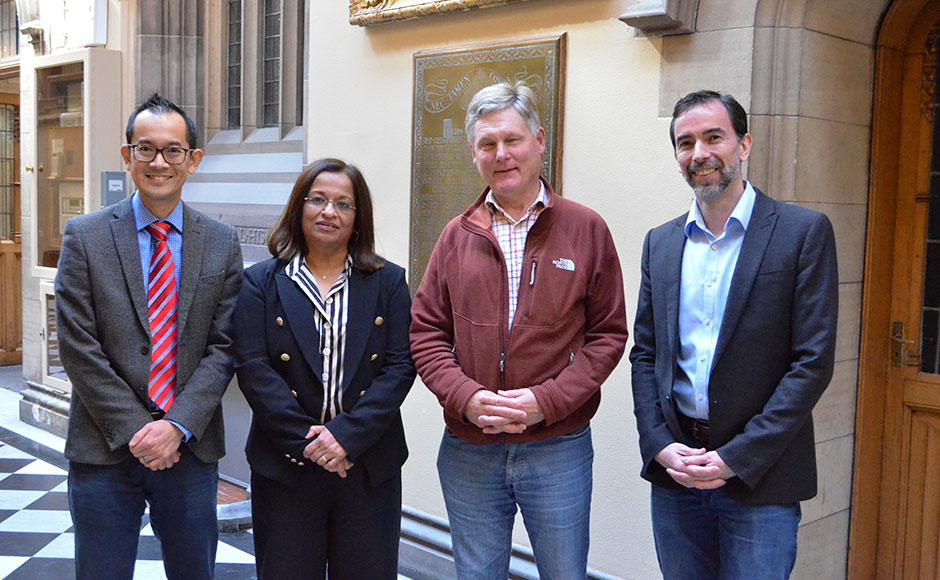
Dr Blount said SCPO helped take the focus of the Church of Scotland beyond the annual General Assembly and someone once remarked that it was the churches that kept poverty and debt on the agenda in the Scottish Parliament.
He lamented that the tone of political debate has become intensely polarised over the years and in hindsight, the churches “grossly underestimated the tribalism of politics”.
However, he drew on a positive comment made by Dr Lesley Orr, an honorary fellow of the Centre for Theology and Public Issues at the University of Edinburgh.
“She has suggested that the Church can still be a background but vibrant factor for many people and a major force for transformation and I think she is right,” said Dr Blount.
“We can continue to inform and nurture Christians in politics and I wonder if there is scope for a potential think tank model and that, alongside a creative presence of the Church, might help take us beyond the reactive lobbying approach.
“I believe that we can get there, beyond the institution, if we can find a language and practice of Christian faith and hope that resonates beyond our denominational numbers.”
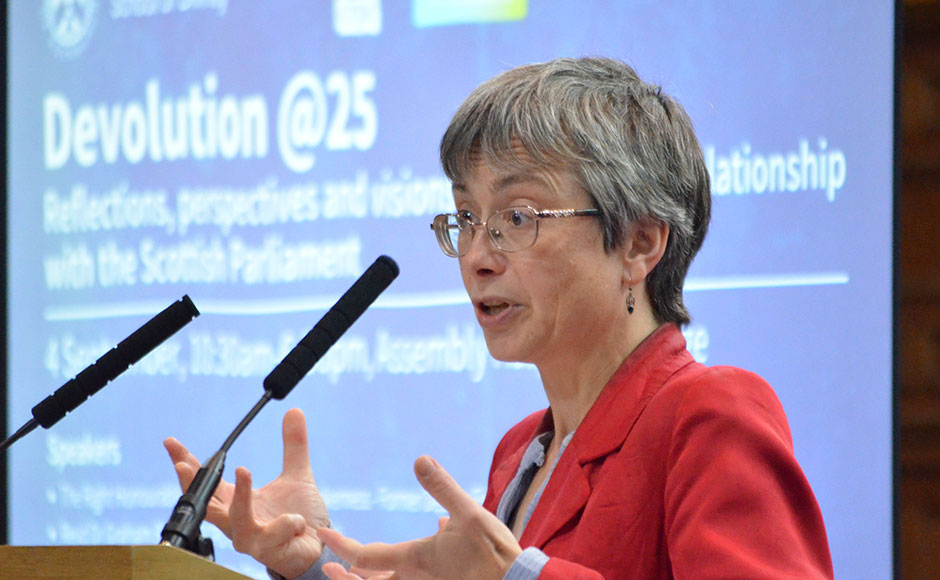
Dr Alison Elliot, the first elder to be elected Moderator of the General Assembly (2004-2005), played a key role in making the case for a Scottish Parliament.
Addressing the conference, she said: “Twenty-five years is a long time and memories fade, but some are still vibrant.
“Every time I pass a cut field, with bales of hay glowing in the evening sun, I think back to September 1997, when the Bus Party toured Scotland in the 100 hours before the devolution referendum.
“Our task was to persuade people to come out and vote for the future of Scotland.
Dr Elliot told delegates she was the convener of the Church of Scotland’s Church and Nation Committee in the 1990s and it had prepared the ground carefully.
“We had scoured old reports of the proceedings of the General Assembly and discovered that, every time the question of concentration of political power had come up, the Assembly voted to disperse it to other bodies, basically following the principle of subsidiarity,” she said.
“We took this as indicating that our predecessors would be in favour of devolving power on this occasion too, and, luckily, the Assembly agreed.
“They also agreed to give us permission to join the various civil society fora that were campaigning for a referendum, something that our predecessors in 1979 had failed to do when devolution was last on the political agenda.”
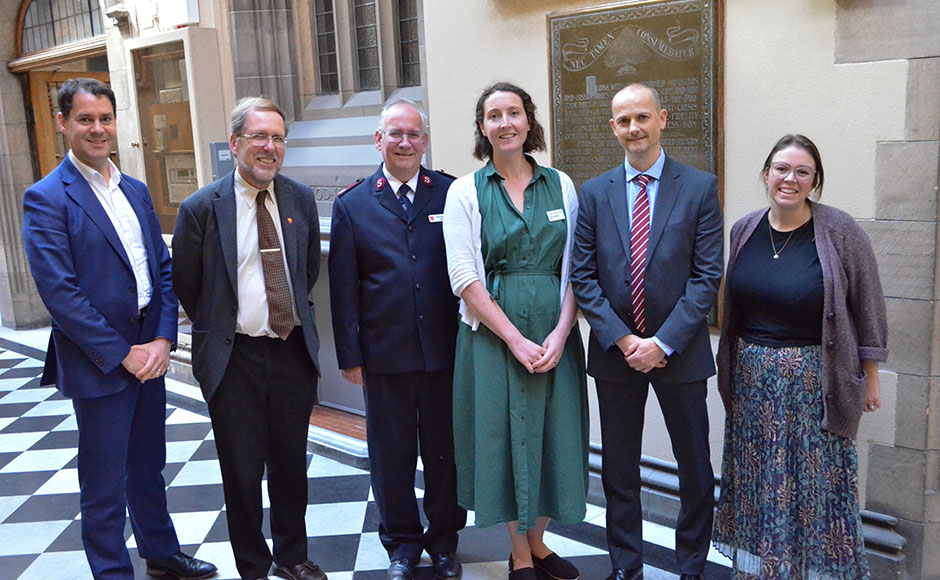
Dr Elliott, former associate director of the Centre for Theology and Public Issues at New College in Edinburgh, said the SCPO was an ecumenical body and accommodated the views and concerns of other churches that did not have the same kinds of processes for coming to a settled view on a topic like the Kirk.
“Opening up this ecumenical window at a time when the institutional voice of the Church was being overtaken presented opportunities for the churches to embrace different ways of doing politics,” she added.
“In a past generation, institutional clout and consistency were strengths and the Church used these qualities to bring Christian values and voices into the public debate.
“But times have changed and these qualities look clumsy in a digital age where social media have more influence over people’s views.
“They are ill-suited to a world dominated more by identity politics than by justice, peace and the integrity of creation.
“An emphasis on the procedures of one Christian denomination is embarrassing and insular in a world of many faiths where the challenge is to humanise, as well as to spiritualise, people’s world views.
“Perhaps that maps out the journey we have been on since devolution and outlines the dangers and opportunities faced by the churches, as well as by the parliament they brought into being.”
Experiences
Session two of the conference focused on the University of Edinburgh School of Divinity Panel and speakers included Stephen Noon, a PhD researcher, Professor Mona Siddiqui, Professor of Islamic and Interreligious Studies and Dr Alex Chow, Senior Lecturer in Theology and World Christianity.
Session three focused on the work of church Parliamentary Officers in devolved nations and speakers include Sarah Komashko, Parliamentary engagement officer (Scotland), Quakers in Britain, Anthony Horan, director of the Catholic Parliamentary Office, Rev Gethin Rhys, policy officer for Churches Together in Wales, and Major David Cavanagh, assistant secretary for Scotland, The Salvation Army.
The conference was jointly organised by SCPO and the Centre for Theology and Public Life (New College, University of Edinburgh).
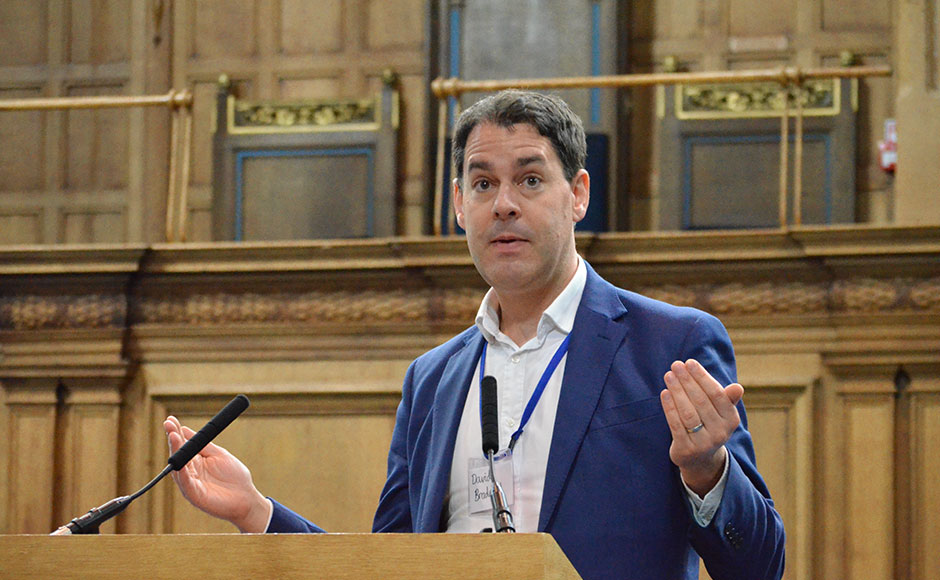
It was chaired by David Bradwell, the serving Scottish Churches Parliamentary Officer, and Professor Rachel Muers, chair in Divinity at the School of Divinity.





